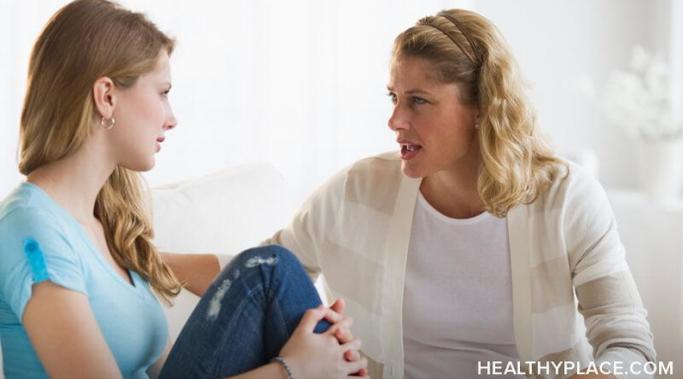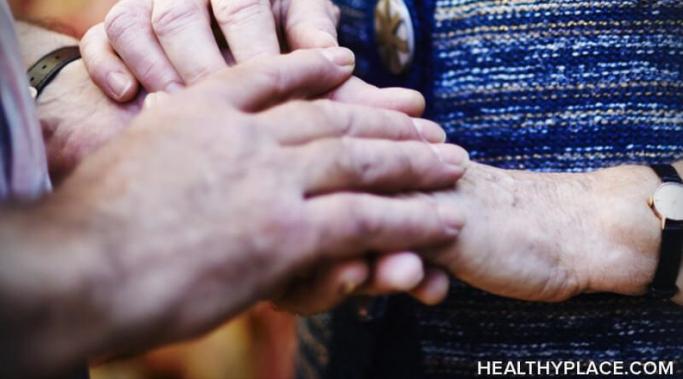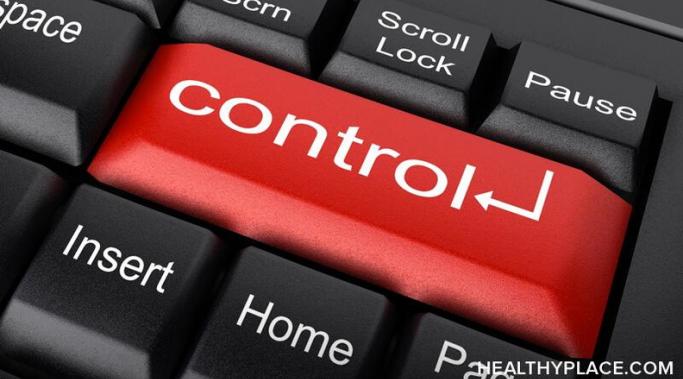It's difficult for some loved ones to give us validation for our mental illness because they don't want to believe we're in so much pain that they cannot heal. Mental illnesses and the symptoms they cause can sometimes put us in a great deal of pain. We have a need to share our pain with others. There’s just a desire in us for people we care about to know that we’re hurting. We want them to know so they can comfort us, reassure us, and take care of us. Mental illness validation from our loved ones and doctors helps us to recover.
Recovering from Mental Illness
This week my life closely resembles one of those old country and western songs. You know the ones. Basically everything that could go wrong has, and even the dog doesn’t want to get close to me.
I’m sitting alone in my four bedroom home, contemplating the condition of my life and wondering just where this is taking me.
I’m very fortunate that I have people in my life, specifically my wife and kids, who truly love me. They love me enough to tell me I need help and they want me to get it. Until I do, they’ve decided that for their own well being, they think living apart from me is the best thing for them right now.
If you are a person with mental illness, it is important that you feel safe with your doctor or psychiatrist. Your relationship with your doctor is one of the most important relationships in your life. This person will hear some of the most intimate details of your life. They will help you decide what medications to take, at what dosage, to help you. Arguably, they will know you as well as your significant other does. Your doctor will have the power to hospitalize you against your will if they determine you to be a danger to yourself or others. So, do you feel safe with your doctor?
Coping with symptoms of mental illness can be a daily struggle for the mentally ill. Each person develops his or her own strategies to cope with these painful experiences. These strategies can be as unique to each person as you can make them. What works for you to battle your mental illness symptoms might not work for me, and vice versa.
We learn these coping strategies over time in the crucible of our illness and the ways in which we gain insight into our symptoms and how they uniquely affect us. That’s why it’s not very helpful to say to a mentally ill person struggling with their symptoms, “Just do this,” or “Just do that.”
The past week has been quite an emotional one for many, especially many in the mental health community. The death of beloved actor Robin Williams by suicide on August 11, has shaken our community to the core.
Why? What is it about Williams and his manner of death that touched so many of us? Many of us understand depression. We get being suicidal. We understand what it’s like when our kids or grandkids ask us to play and we must say, “No, I’m sorry honey. I just don’t feel up to it right now.”
That terrible mix of guilt and fear, blended with the self-loathing because we feel like we have no energy, yet refuse to stop beating ourselves up over the very depression that is making us feel that way.
In 2010, I worked as a peer support specialist for a mental health organization in my community. Having been on the job for just over a year, I was feeling fulfilled and proud of myself for what I’d accomplished. Most importantly, I was making a difference to other people who suffered from mental illness. My colleagues were happy with my work and made it a point of telling me so.
So imagine my surprise when I was called into the boss’s office one day. She looked at me and said, “Mike, you are decompensating.” I didn’t even know what that meant.
Sometimes I feel strange and different from healthy people. Perhaps we internalize stigma because we feel a deep sense of shame. We’re offbeat, eccentric, weird and ashamed.
Shame makes me want to hide the real me. I don’t want others to see the real me, the one who is embarrassed to be thought of as mentally ill. I don’t want HealthyPlace readers to know it either because I’m afraid they might stigmatize me the other way, perhaps get angry with me because I still sometimes succumb to the disconcerting voice of stigma.
Have you ever noticed that control is a major life issue for people? And have you noticed that we all, as human beings, want to have control of ourselves, others, and pretty much the entire universe, if we had our way? Of course, you've noticed, because you've lived around other people enough to know that our quest to control permeates much of our lives.
One of the worst things about having a mental disorder is the symptoms the mental disorder causes. These symptoms are the cause of much suffering for those of us who have received a mental health diagnosis. We face our symptoms every day, sometimes every minute of the day. They can cause us to see the world and the circumstances of life very differently than people who aren’t mentally ill.
Because we sometimes perceive things this way, we occasionally come into conflict with people. It’s often family who don’t comprehend our behavior, especially since they see us at our worst. Misconceptions can, and do, happen, frequently, on both sides. Of course, it’s not only we who misperceive. Misperceptions can lead to stereotyping, part of mental health stigma. Let’s look at some examples of these stereotypes.
Last week brought me a lesson in the need to be prepared when mental health triggers come, as they inevitably do in our recovery. These triggers can be dangerous because they can instantly transport us to a place of emotional turmoil and intensify our symptoms. In order to manage our illness, we must be prepared at all times. We never know when we can be triggered and we need to take steps to ensure we and others around us are safe.
This past week, there was a national firestorm with the release of American POW Bowe Bergdahl from captivity in Afghanistan. I had not known the story prior to this, but when I heard the circumstances of his experience, I was triggered in a way that hasn’t happened in a long time.








